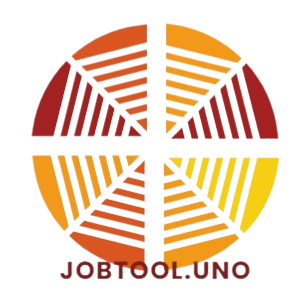Understanding Daily Task Management
Daily task management refers to the process of organizing, prioritizing, and executing a set of responsibilities within a specified timeframe. It plays a crucial role in the daily operations of specialists who juggle numerous duties, ensuring that all necessary tasks are completed efficiently and effectively. By establishing a structured approach to managing daily activities, individuals can enhance their overall productivity and maintain a balanced workflow.
The importance of effective task management cannot be overstated. It aims to increase productivity by allowing practitioners to focus on high-priority tasks and minimize time spent on less critical activities. Furthermore, a well-implemented task management system reduces stress levels, as individuals gain clarity on their responsibilities and deadlines. This clarity fosters a sense of accountability, ensuring that all team members understand their roles and the significance of meeting their commitments.
Various methodologies and frameworks exist to aid in daily task management, each designed to cater to different preferences and work environments. Methods such as the Eisenhower Matrix allow individuals to categorize tasks based on urgency and importance, while Kanban systems provide a visual representation of ongoing work. Other frameworks, like the Getting Things Done (GTD) method, emphasize a systematic approach to task capture and organization, promoting a stress-free workflow. These diverse methodologies offer valuable insights and tools for individuals seeking to refine their task management practices.
In conclusion, mastering daily task management is essential for specialists aiming to navigate the complexities of their roles. By understanding its significance and exploring various frameworks, professionals can establish effective systems that enhance productivity, reduce stress, and promote accountability in their daily responsibilities.
Manual Methods for Daily Task Organization
Manual task management methods have been widely regarded as effective tools for specialists seeking to enhance their daily productivity. Among the most prevalent techniques are to-do lists, bullet journaling, and time blocking. Each of these methods offers a unique structure that caters to specific organizational needs.
To-do lists are perhaps the simplest and most straightforward method of task organization. They allow individuals to jot down tasks in a linear format, providing a clear overview of what needs to be accomplished. The primary advantage of to-do lists lies in their ease of use, enabling quick updates and modifications. This method is ideal for users who prefer a basic approach to daily task management, helping them maintain focus on immediate responsibilities while fostering a sense of accomplishment as tasks are completed.
Bullet journaling, on the other hand, introduces a more creative and structured approach to task organization. This method combines elements of a diary, planner, and task tracker. With bullet journals, specialists can customize their layouts, utilizing symbols and colors to signify different tasks and priorities. The advantage of bullet journaling is its flexibility, allowing users to adapt the system to fit their personalized needs. Those who engage in this method often find that combining creativity with functionality enhances their overall motivation and productivity.
Time blocking is yet another effective technique for species focused on daily tasks. This method involves dividing the day into blocks of time assigned to specific tasks or activities. By dedicating focused periods to single tasks, users can minimize distractions and increase efficiency. The primary advantage of time blocking is its ability to provide structure to one’s day, promoting a disciplined approach to task management. It is especially beneficial for those juggling various responsibilities, as it encourages a more intentional allocation of time.
To maximize the effectiveness of these manual methods, specialists should regularly review and prioritize their tasks, ensuring that their organizational approach remains aligned with their goals. Each technique offers distinct advantages, thus users can experiment with combinations to find the optimal approach that suits their daily task management needs.
Digital Tools for Daily Task Management
In today’s fast-paced professional environment, effective daily task management is crucial for enhancing productivity and ensuring that essential objectives are met. A variety of digital tools are available, each designed to cater to the specific needs of specialists in diverse fields. Platforms such as Trello, Asana, and Todoist have gained popularity due to their user-friendly interfaces and robust feature sets.
Trello, known for its visual approach, employs a board and card system that allows users to organize tasks by categories and priorities. This tool is particularly beneficial for teams involved in project management, where visual updates on progress can enhance collaboration. Users can create lists that represent different phases of a project, making it easy to track tasks from inception to completion.
Asana stands out for its comprehensive project tracking capabilities. Offering features such as timeline views, task dependencies, and project milestones, it is ideal for specialists who need to coordinate complex projects. The ability to assign tasks, set deadlines, and add comments fosters real-time communication among team members, thereby minimizing confusion and ensuring everyone is aligned with project goals.
Todoist, on the other hand, targets individual users with a simple yet powerful task management system. With its intuitive design, Todoist helps users prioritize tasks, set reminders, and even assess productivity trends over time. This makes it an excellent choice for professionals seeking to streamline their daily routines and enhance personal accountability.
When selecting the right digital tool for daily task management, it is essential to consider individual and organizational requirements. Free options may suffice for those with basic needs, while paid versions often provide more advanced features such as integration with other software and enhanced support. Real-life examples highlight how adopting these tools can significantly simplify daily task management, leading to increased efficiency and satisfaction in both personal and professional pursuits.
Best Practices for Effective Daily Management
Effective daily task management is crucial for specialists aiming to achieve their goals efficiently. To enhance this aspect, individuals should establish consistent routines that complement their work style. A solid routine helps streamline activities, ensuring that repetitive tasks are executed seamlessly. It also cultivates discipline, which is vital for maintaining productivity throughout the day.
Prioritizing tasks can significantly impact how specialists manage their time. Utilizing techniques such as the Eisenhower Matrix allows individuals to distinguish between urgent and important tasks, ensuring that they dedicate their efforts to high-priority items. By focusing on these critical tasks first, specialists can make meaningful progress and reduce the feeling of being overwhelmed by less significant duties.
Setting clear deadlines also plays a pivotal role in daily task management. Deadlines create a sense of urgency and can motivate individuals to complete tasks more efficiently. It is advisable to break larger projects into smaller, manageable tasks, each with its own deadline. This approach not only simplifies the process but also fosters a sense of accomplishment as tasks are completed, contributing to an overall better management experience.
Regularly reviewing progress is another best practice that specialists should adopt. This can be achieved through weekly reflections or daily check-ins, allowing individuals to assess what strategies are working and what areas need improvement. Being adaptable and flexible in response to changing circumstances or unexpected challenges is essential. Embracing a mindset that is open to modification can help individuals adjust their task management strategies effectively.
Finally, overcoming common challenges in daily task management requires a personalized approach. By recognizing one’s unique work style and preferences, specialists can implement strategies that align with their habits. Emphasizing sustainability and maintaining efficiency in daily management will ultimately lead to a more productive and fulfilling work experience.


No responses yet